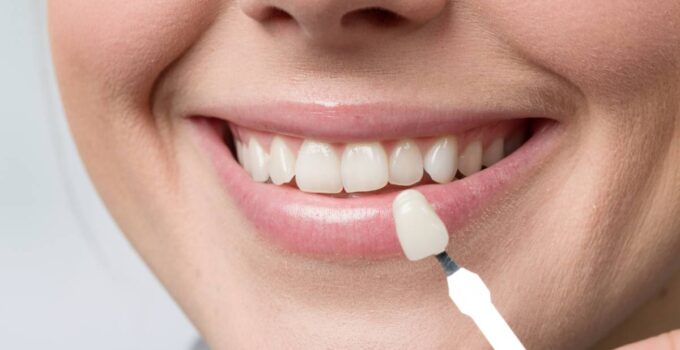Dental veneers, those remarkable, ultra-thin custom shells, hold the power to transform your smile into a work of art. They’re meticulously designed to match the natural color and shape of your teeth, serving as a cosmetic solution for an array of dental imperfections. However, beyond their cosmetic appeal, we embark on a journey to explore a pivotal aspect: their durability.
What Are Dental Veneers?
Dental veneers, often hailed as the unsung heroes of cosmetic dentistry, offer a versatile solution to an array of aesthetic dental concerns. These whisper-thin shells are painstakingly crafted to envelop the front surface of your teeth, effectively concealing imperfections such as stains, chips, gaps, and misalignments.
To ensure a snug fit, a minuscule portion of your tooth’s surface is gently removed, creating a canvas for the veneer to work its magic. When it comes to coating, two primary types are in the spotlight: porcelain and composite.
Porcelain veneers are the top-tier choice for those seeking a picture-perfect smile. Renowned for their lifelike appearance and resilience against staining, these veneers are crafted with meticulous precision to mimic the texture and translucence of natural teeth.
Composite coating, on the other hand, offers a more budget-friendly alternative. These coatings are directly applied to your teeth in layers, with each layer hardened using a special light. While they may not match porcelain’s longevity, composite coatings have come a long way in terms of aesthetics and can provide a cost-effective solution for improving your smile. Both options work just fine when done by professionals such as Dental Veneers FW dental.
Factors Affecting Veneer Durability
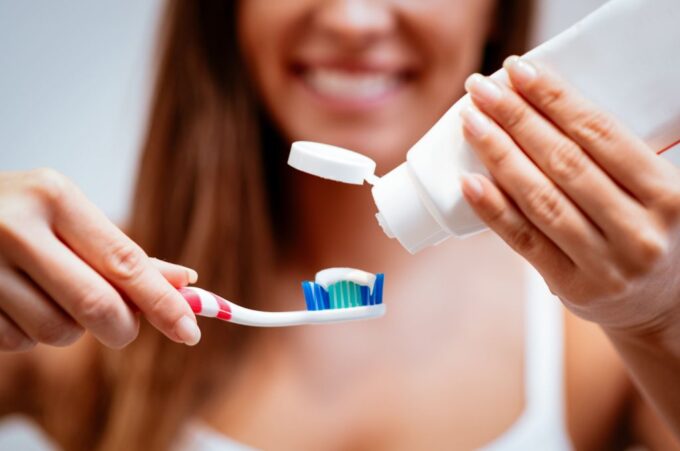
Source: alvernahouse.co.uk
Now that we understand the basics of dental veneers, it’s time to explore the factors that can sway their longevity. Several key elements come into play:
Material Choice: The material of your coating plays a crucial role in determining their durability. Porcelain veneers are renowned for their longevity, often surpassing a decade if properly maintained. They’re also highly resistant to staining, ensuring your smile remains pristine. In contrast, composite coatings, while more budget-friendly, might require replacement sooner, making material choice a pivotal decision in your veneer journey.
Oral Hygiene: Just like your natural teeth, coating thrives on good oral hygiene. Regular brushing, flossing, and routine dental check-ups are essential for maintaining the health and appearance of your veneers. Neglecting oral care can lead to plaque buildup, which not only affects your natural teeth but can also compromise the longevity of your coating.
Daily Habits: Our daily routines can impact veneer durability. Habits like nail-biting, using your teeth as tools, or grinding your teeth can exert undue stress on your coating, potentially causing chips or fractures. Being mindful of these habits can go a long way in ensuring your coating stands the test of time.
Material Options for Veneers
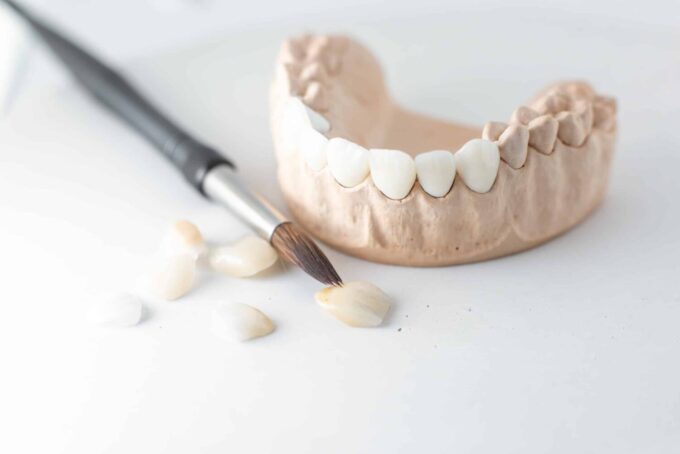
Source: toorakdentalstudio.com.au
When considering dental veneers, the choice of material is a pivotal decision. Here’s an in-depth look at the pros and cons of each:
Porcelain Type: These are the crème de la crème of veneers. With their unparalleled natural appearance and resistance to staining, porcelain facades often last upwards of a decade or more. However, they come with a higher price tag.
Composite Type: More budget-friendly, composite facades offer a speedy solution to smile enhancement. While they may not match porcelain’s durability, advancements in composite materials have made them more appealing. They may require replacement sooner but can still provide a lasting improvement to your smile.
Expected Lifespan of Veneers
The lifespan of dental veneers can vary from patient to patient. Generally, porcelain veneers tend to outlast composite ones due to their robust nature. With proper care, porcelain facade can last anywhere from 10 to 15 years or even longer. Composite veneers, on the other hand, may need replacement every 5 to 7 years.
Proper Oral Care for Veneers
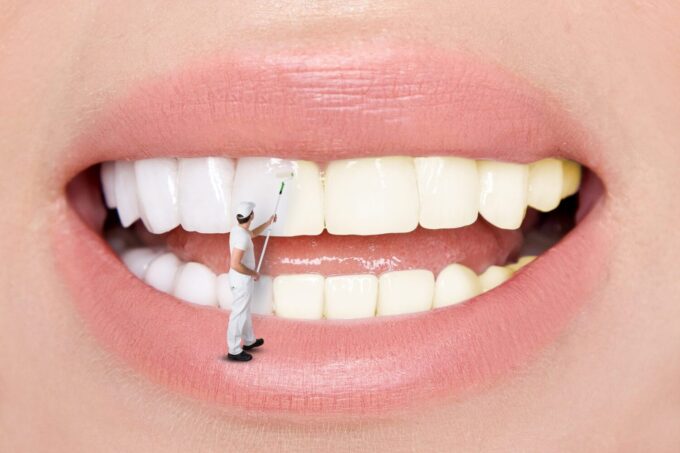
Source: dentist-telaviv.com
Preserving your veneers begins with good oral hygiene. Here’s how to care for them:
Brush and Floss: Maintain a regular routine of brushing and flossing to prevent plaque buildup. Use a soft-bristle toothbrush to avoid scratching the veneers.
Avoid Stain-Causing Foods: Minimize consumption of foods and beverages that stain teeth, like coffee, red wine, and berries.
Regular Dental Check-ups: Don’t skip your dental appointments. Your dentist can monitor the condition of your coating and address any issues promptly.
Common Mistakes to Avoid
To extend the life of your veneers, steer clear of these common mistakes:
Using a Hard Toothbrush: Opt for a soft-bristle toothbrush to prevent damaging the coating.
Biting into Hard Objects: Avoid biting into hard items like ice, pens, or fingernails, as this can chip or crack your coating.
Veneer Maintenance Tips

Source: columbiadentistsc.com
To keep your veneers in top shape, consider these maintenance tips:
Professional Cleaning: Schedule regular dental cleanings to remove plaque and stains that can accumulate on veneers.
Night Guard: If you’re prone to teeth grinding or clenching, consider using a night guard to protect your coating while you sleep.
Signs of Veneer Wear and Tear
Knowing the signs of veneer wear and tear is crucial. If you notice any of these issues, consult your dentist:
Chipping or Cracking: Small chips or cracks can escalate if left unattended.
Discoloration: While porcelain veneers are highly stain-resistant, composite coating may discolor over time.
Sensitivity: Increased sensitivity to hot or cold temperatures could indicate an issue with your veneers.
Veneer Replacement Process
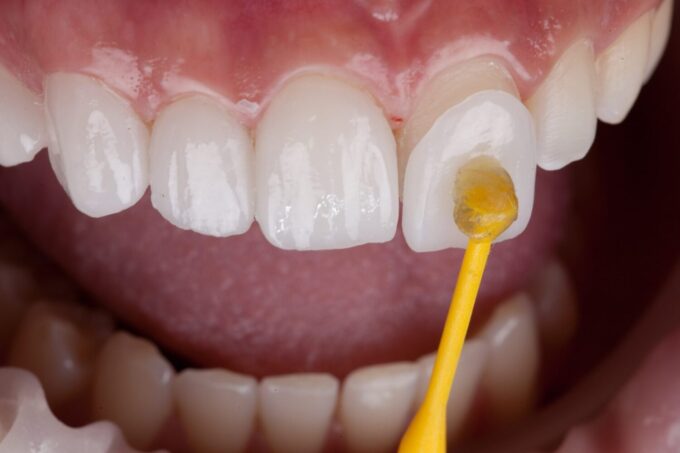
Source: drgdentalstudio.com
When it’s time for veneer replacement, here’s what to expect:
Consultation: Your dentist will assess the condition of your current coating and discuss your options.
Removal: The old veneers are gently removed.
Impressions: New impressions of your teeth are taken to create custom-fit replacements.
Placement: Once the new coatings are ready, they are securely bonded to your teeth, restoring your smile’s brilliance.
Cost Considerations
Maintaining and replacing veneers comes with a financial aspect to consider. Here’s what to keep in mind:
Cost of Maintenance: Regular dental check-ups and cleanings are part of veneer maintenance costs.
Replacement Cost: When it’s time for new coating, be prepared for the cost of materials and the dental procedure.
Insurance Coverage: Check with your dental insurance provider to see if any part of your veneer care or replacement is covered.
Financing Options: Many dentists offer financing plans to help spread the cost over time.
Conclusion and Final Thoughts
In summary, dental veneers are a remarkable cosmetic dentistry solution, offering the promise of a radiant smile. However, their durability hinges on factors such as material choice, oral care, and daily habits. While porcelain coatings are the longevity champions, composite veneers offer affordability. Regardless of the material, proper care, and maintenance are paramount.

